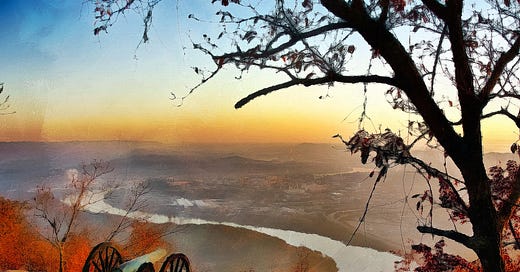vol. 1 issue 15

The Battle of Missionary Ridge at Chattanooga. Photo: Brigitte Werner from Pixabay
vol. 1, issue 15
Greetings,
One summer weekend, nearly thirty years ago, I found myself about an hour or so north of Toronto in Barrie, Ontario. I had volunteered to work at the Mariposa Folk Festival where somehow, as a member of the volunteer security tea…



